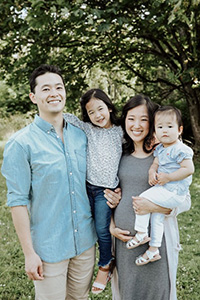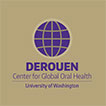 Justin is a third-year dental student at the University of Washington. He graduated from Brigham Young University with a degree in Physiology and Developmental Biology and is passionate about the health-care field. Justin lived in São Paulo, Brazil for two years as a volunteer through church and loves to learn about cultures and people around the world. He enjoys playing and spending time with his daughters and watching sports with his wife.
Justin is a third-year dental student at the University of Washington. He graduated from Brigham Young University with a degree in Physiology and Developmental Biology and is passionate about the health-care field. Justin lived in São Paulo, Brazil for two years as a volunteer through church and loves to learn about cultures and people around the world. He enjoys playing and spending time with his daughters and watching sports with his wife.
Hi, my name is Justin. I’m currently a third-year dental student at the University of Washington and have been enjoying my experience so far at the DeRouen Center for Oral Global Health.
My journey in becoming a future oral health care provider has been an interesting process to say the least. I distinctly remember the day my mom brought a library book to our home (I am not sure how old I was, but I was probably in elementary school). It was a photographic book about the careers of cardiothoracic surgeons. At that moment, I knew that I was destined to become a medical doctor.
Fast forward to my junior year of my undergraduate career. The many years of sweat and tears had paid off so far. I just needed to take the MCAT and send out my application. I happened to have the invaluable experience of working as a medical scribe at an emergency department. There, amid the chaos of first responders running through the ambulance bay and the constant beeping of monitors recording vital signs, the physicians were collected and totally in control. It seemed as if there was nothing that they couldn’t do; from trauma to infectious disease to neurological disorders, they completely embodied the concept of “jack of all trades.” Yet there was one population that always seemed to be beyond their reach: patients with dental pain, especially those lacking access to regular care. I remember these patients in excruciating pain entering the emergency department well past midnight, only to leave again after being handed a paper with a list of local dentists and a prescription for antibiotics.
I couldn’t help but think about those patients long after my shifts were over. I would wonder if they ever received the treatment they desperately needed. Somehow, these patients reminded me of the people I met when I lived in São Paulo, Brazil for two years as a volunteer for my church. I remember that certain people, especially those in poorer areas, were especially susceptible to lack of access to adequate dental care. I remember that these people often had difficulty in many aspects of their life due to poor oral health, including difficulty eating and speaking, suffering through severe pain, and being self-conscious of their dentition. That’s when it struck me that oral health disparities weren’t just a problem in my home country; rather, they span across the entire globe.
I love working with the DeRouen Center for Global Oral Health and look forward to doing my part to help address these very real and concerning problems in our society and around the world.
